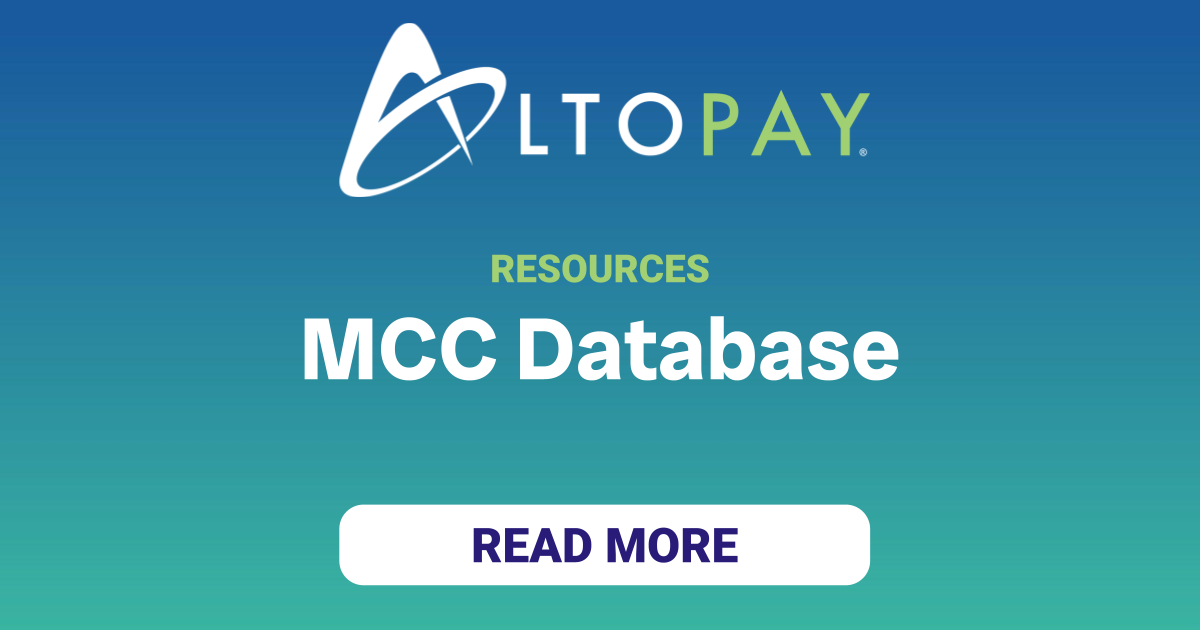DEFINITION
MCC 5399: Miscellaneous General Merchandise Stores
MCC Database / 5399: Miscellaneous General Merchandise Stores
Every merchant is assigned a merchant category code (MCC) — a four-digit number used by card networks to classify the primary business activity. MCCs determine how transactions are processed, how fees are structured, and how risk is assessed.
Let’s take a closer look at MCC 5399.
What is MCC 5399?
MCC 5399 covers merchants that sell a wide range of general merchandise but do not fall under more specific retail MCC categories. These businesses typically offer products from multiple categories — such as apparel, electronics, home goods, toys, or seasonal items — without a dominant line of merchandise that qualifies for a more narrowly defined MCC.
The “miscellaneous” classification indicates a broad or blended catalog that may shift with demand, local inventory, or seasonal trends. It’s frequently assigned to ecommerce sellers or physical stores whose offerings don’t cleanly align with a single product type.
Is MCC 5399 considered high risk?
Not typically. MCC 5399 is generally treated as low to moderate risk, but risk status may vary depending on how the business operates:
- Ecommerce businesses using this MCC may see elevated fraud exposure due to card-not-present transactions and variable fulfillment timelines.
- Product variety can complicate dispute resolution, especially if descriptors or receipts are vague.
- Third-party marketplaces using MCC 5399 may face stricter underwriting if they allow vendors with inconsistent quality or customer service records.
While not flagged as high risk by default, processors may still apply enhanced due diligence if the business has a high refund rate, stocks controversial goods, or operates under a dropshipping model.
Does MCC 5399 require a license?
There are no licensing requirements specific to this MCC. However, merchants must still comply with standard legal, tax, and regulatory requirements for retail businesses, including:
- Accurate and transparent product listings and return policies
- Proper collection and remittance of sales tax
- Data protection for cardholder and customer information (especially online)
- Adherence to age-restricted item rules where applicable (e.g., if selling tobacco, knives, etc.)
Payment processors may also request documentation that clarifies what types of merchandise are sold — particularly for online stores or businesses with a large catalog.
Does MCC 5399 have special fees or pricing?
Generally, MCC 5399 does not carry special pricing. Standard interchange rates for retail apply, though actual fees will depend on:
- The business model (in-person vs. online)
- Chargeback history and volume
- The acquiring bank’s risk assessment
For card-not-present merchants, especially those with fast-changing inventory or subscription models, reserve accounts or tiered pricing may be introduced to mitigate perceived risk.
Can I have multiple MCCs if I offer multiple services?
Yes — but only if your business operates multiple distinct lines, each with its own identity and operations.
For example, if you own both a clothing boutique and a convenience store and operate them under separate names and websites, each may qualify for its own MCC. However, if you run a single store with a mix of merchandise, you’ll be classified under the most appropriate catch-all code — in this case, MCC 5399.
To justify a different code, you’ll need to document the business segmentation clearly. This might include brand identities, site URLs, or merchant account separation.
What are some similar MCCs?
If your merchandise mix or business model is more specific than MCC 5399 allows, you may fall under or be compared to:
Understanding nearby MCCs helps ensure you’re assigned the most accurate code — which can affect your fees, approvals, and risk monitoring profile.
Ready to Simplify Payment Processing for a General Merchandise Business?
Whether you’re managing an online shop, physical store, or something in between, AltoPay helps streamline your underwriting, optimize approval rates, and stay ahead of risk — even with a broad product mix.
FREQUENTLY ASKED QUESTIONS
What else do I need to know about MCCs?
Are MCCs the same across all card networks and acquirers?
Most MCCs are consistent across card brands. However, there might be some slight variations.
The biggest discrepancies happen from one acquirer or processor to another. MCC assignment is somewhat subjective and can vary from acquirer to acquirer.
Who decides my MCC?
Your MCC is assigned by your acquiring bank or payment processor during account setup. They match your business to the category that best represents your primary revenue stream using official lists from Visa and Mastercard. Although you cannot self-select, you can request a change if the designation is inaccurate.
How do I know what my MCC is?
You can typically find your MCC listed on your VAR sheet, in your merchant services agreement, or within your payment processing dashboard. If you’re unsure or can’t locate it, your provider can confirm it directly.
Does my MCC affect my interchange rate?
Yes. MCCs are a core factor in determining which interchange rates apply to your transactions. Codes tied to higher-risk or higher-cost industries usually carry higher processing fees than those in lower-risk retail or services.
Can my MCC affect my ability to process payments?
It can. Some MCCs are restricted or outright prohibited by certain processors. High-risk categories may be subject to reserves, stricter underwriting, or reduced processor options.
How often can my MCC change?
Most merchants keep the same MCC indefinitely. It only changes if your primary business activity shifts. To request an update, you’ll need to supply documentation proving the change.
What happens if I’m misclassified with the wrong MCC?
Incorrect classification can cost you more in fees, limit your payment options, and even hurt your dispute win rate. You can challenge your MCC by submitting evidence of your true business activity, such as invoices, catalogs, or marketing materials.


